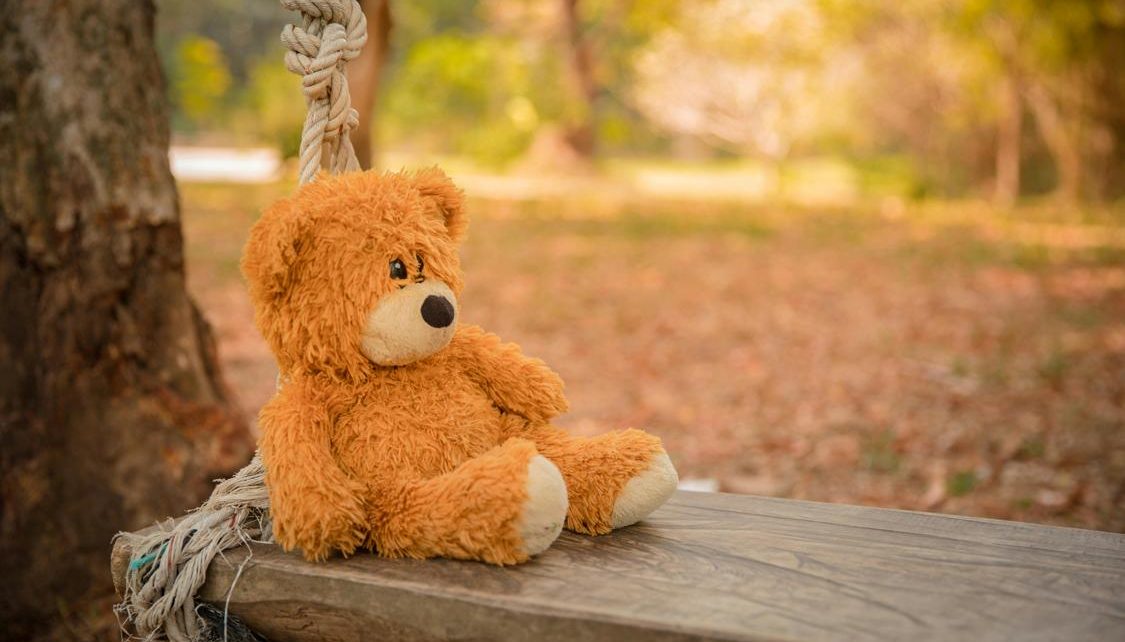Teddy bears hold a special place in kids’ hearts. They’re more than just cuddly companions—they help children develop emotional growth, social skills and empathy.
Musical toys have always fascinated children, offering a charming blend of softness and musical enchantment. Musical teddy bears that use real instruments take this fascination a step further, captivating kids with their magical sound.
Comfort
The soft, fuzzy feeling of a Teddy bear or other stuffed animal triggers feelings of comfort and security. It reminds us of our childhood and simpler times, fostering emotional stability during challenging times. The soothing presence of a teddy bear can help relieve nighttime anxieties, creating a sense of security to allow you to fall asleep peacefully.
These cuddle buddies help teach children to self-soothe, a vital skill in coping with difficult situations. They act as a safe companion for kids, instilling courage to face their fears and anxieties. Teddy bears also give them the confidence they need to express themselves, promoting self-esteem and a sense of belonging.
A teddy bear, like a really cute one from Bears4U, can also foster empathy as children learn to care for their lovable friends. When they nurture their bears, it releases oxytocin, a hormone known to reduce stress and boost self-appreciation. These positive experiences with a plush friend help children develop healthy, well-balanced emotions that can last a lifetime.
The bond that a child creates with their Teddy bear can transcend generations as parents and grandparents can enjoy the same teddy bear as their own children. When this happens, it helps build a strong connection and creates a strong foundation of trust.
The special bond that a child creates with their teddy bear or other stuffed animal promotes creativity, imagination, and learning. Children can engage in imaginative play and role-playing with their teddy bears, exploring the world around them in fun ways like having tea parties or creating a fantasy world of adventures that are only limited by their own minds. The skills and experiences that they learn through these magical moments with their teddy bears will carry them throughout their lives, helping them in academic, professional, and personal endeavors.
Self-Soothing
Self-soothing is a general term that can be used to describe behaviors a child uses to regulate their emotions. For example, a child may suck their thumb or rock back and forth in their crib to calm themselves. It can also refer to a child who eats or drinks to soothe themselves. The underlying cause of self-soothing behaviors is that a child needs to meet their basic emotional needs (e.g., occupy their time, feel safe and secure, etc). Children who have experienced consistent deprivation or abandonment may have to learn how to soothe themselves through self-soothing behaviors.
A parent’s response to self-soothing behaviors can vary. Some parents think a particular behavior is developmentally appropriate while others find it concerning and want to address it immediately.
Often times, parents can help their child break the self-soothing habits by understanding the underlying causes and by teaching new healthy ways of regulating. For example, a parent can encourage a child to use play to relieve stress or anxiety instead of head-banging. They can also help a child to identify their feelings by using tools like feelings charts, puppets and role playing.
Some times, a child’s self-soothing behaviour may be dangerous or lead to injury. In this case, parents should be prepared to intervene quickly and prevent injuries. For example, if a child is hitting themselves repeatedly on the head with their hand, it can be helpful to redirect this behavior onto something soft such as a pillow until they can learn better coping skills.
Communication
For generations, teddy bears have charmed children’s hearts, transcending mere toys and becoming beloved confidantes and lifelong friends. Their plush exteriors and gentle demeanors are the perfect canvas for imaginative play, encouraging creativity, fostering curiosity, and inspiring a sense of wonder in kids. During Teddy Bear Tea Parties, children immerse themselves in their imaginative world, transporting their Giant teddy bear friends into an imaginary realm where anything is possible.
Imaginative play teaches children how to communicate their thoughts and feelings to others, and fosters emotional intelligence and empathy. The teddy bears they create and interact with help them understand the feelings of those around them and how to care for their loved ones, establishing a foundation of healthy relationships that will continue throughout their lives.
The open-ended nature of Teddy Bear Tea Parties also encourages children to think creatively and develop their own narratives during playtime adventures. This teaches them to see possibilities in everyday objects and situations, instilling a sense of exploration and innovation in their thinking. Additionally, successfully completing a scenario during pretend play bolsters their self-esteem and confidence, encouraging a sense of accomplishment and mastery that translates into a positive self-image for both kids and their Giant teddy bear friends.
This magical bond between teddy bears and kids also provides opportunities for parents to join in the fun, strengthening parent-child bonds and creating cherished memories together. In “Leo and the Talking Teddy Bear,” for example, Leo’s teddy bear friend reveals that he is actually a wise and friendly guide from a faraway planet, helping Leo to conquer a challenging challenge on the Planet of Bravery. They returned home with a new understanding of the limitless magic of friendship and courage, and a renewed appreciation for the value of their bond.
Empathy
When you empathize with another person, you feel their emotions and try to understand their perspective. It can be hard to do, but it can lead to healthier and happier relationships.
Empathy is a natural human behavior that may have evolved due to parental care and survival needs. Research on chimpanzees has shown that females who were more likely to provide comfort to their offspring out-reproduced males who showed little interest in the situation, according to Greater Good Science Center.
Although empathy can be hard to practice, there are many ways you can hone your skills. One way is to learn about different cultures and traditions. This will help you appreciate the perspectives of others and develop more compassion. Another way is to read more fiction, such as books and movies, that offer different points of view. Trying to understand what makes a character tick and empathizing with their feelings can help you develop more empathy for your own friends and family.
You can also flex your empathy muscles by practicing active listening, which involves listening attentively and responding to what you hear. By showing interest in your conversation partner and asking open-ended questions, you can demonstrate that you care about what they are saying. The social hormone oxytocin can also foster empathy by triggering behaviors like eye contact and soft physical touch, according to Bianca Jones Marlin, neuroscientist and assistant professor of psychology at Columbia University.
Lastly, you can hone your empathy by learning to recognize your own emotional triggers. This can help you avoid unhelpful responses to stressful situations, such as anger or depression. For example, if you notice that you start to feel anxious or depressed when your friend shares something negative about themselves, you can take steps to reduce those emotions by distracting yourself with a hobby.
Friendship

Teddy bears and soft toys have the unique ability to span generations, providing a connection across time. From the 19th century English fairytale Goldilocks and the Three Bears to modern television shows like The Care Bears and Disney films such as Brave, bears have been used in storytelling to convey enduring messages of familial love, strength of character and hope. These stories can help children learn about their own family history and connect with relatives who have passed on their beloved teddy bears.
Teddy bear friendships can be an important vehicle for empathy and understanding of the world around them. Children are often able to project their own feelings onto their teddy bears, and through the use of pretend play, they can discuss these emotions in an emotionally safe environment. This process can allow them to better understand their own emotions and those of others, as well as develop skills for conflict resolution and healthy communication.
Stimulating Imagination
Through their playful nature, teddy bears encourage creativity and imaginative thinking. Through Teddy Bear Tea Parties and their many variations, children are able to create imaginary journeys with their friends (both stuffed and human) and learn how to communicate and cooperate in a fun way. This creative mindset can help children become inventive problem-solvers and think outside of the box, something that will be beneficial to them throughout their lives.
Teddy bears are a constant companion through life’s diverse moments, lifting spirits in times of sadness and lending an ear to those who need one. Their ability to adapt and be flexible is what makes them so valuable in children’s lives. They ask for nothing in return and remain a constant source of comfort and support.




